Tony Brooks: A winner — but he didn't like the fuss
Gordon Cruickshank remembers the phone calls and press functions with Tony Brooks, a courteous soul who shunned the limelight
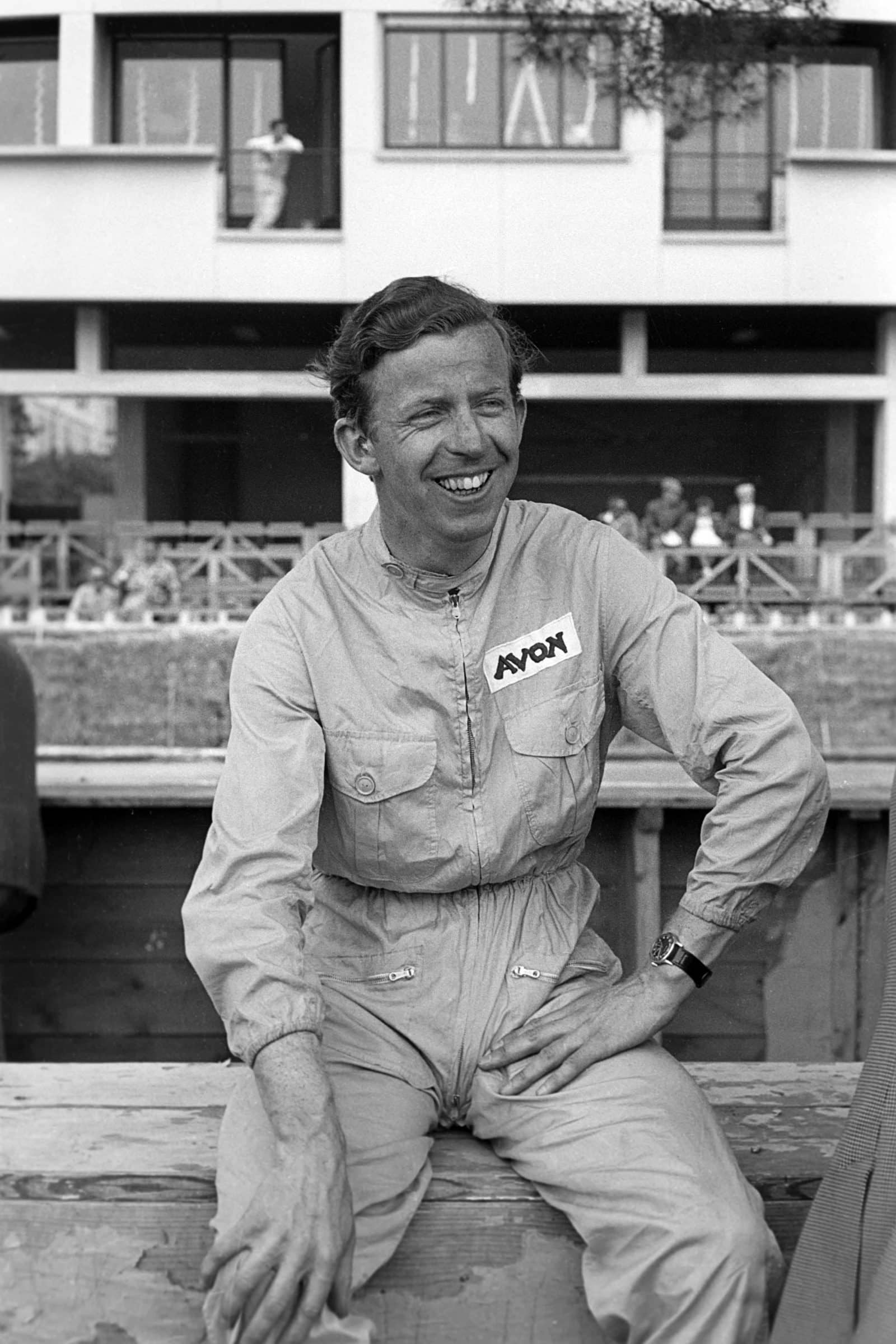
Brooks at Monaco in ’58 with Vanwall. Although he didn’t finish this race, he twice reached the podium here
Bernard Cahier/Getty Images
I’ll miss the phone calls from Tony Brooks. Sometimes it was to clarify something we had written in the magazine, sometimes just to get some information and then discuss Verstappen vs Hamilton; on one deflating occasion it was to announce that like his friend and team-mate Stirling Moss he was withdrawing from public life. Dealing with cancer and major surgical operations, he no longer had the energy to appear at press events and race meetings. He was then heading towards his nineties.
I got to know him at various press and public functions and when he contributed to stories for the magazine, he was unfailingly helpful with his memories. He had fine recall of his various races, and if I plied him with some abstruse corner of history that he simply couldn’t remember, he was apologetic that he had somehow let me down. Always courteous and unassuming, he was the most self-effacing of that generation of grand prix drivers from the front-engined era of whom he and Stirling Moss were the last and perhaps the greatest.
“Doing the job properly was Tony’s way, always playing for the team”
Though a multiple grand prix winner and victorious in sports cars at Le Mans and the Nürburgring, he did not radiate self-importance. In his time Mike Hawthorn lapped up public acclaim; to the end of his life Stirling Moss knew the value of publicity – you could always tell where he was in the room because faces would be focused on him. In contrast, Tony would be standing out of the main throng, dressed in a quiet blue suit with BRDC tie, talking quietly to his charming Italian wife Pina or one or two others who recognised his achievements.
And those achievements were immense, from that era-defining victory in Syracuse through wins for Vanwall to being called to Ferrari and coming within an ace of taking the 1959 world championship crown. It was almost certainly a moment of prudence – stopping to check for damage in the title-clinching US race when he was a likely winner – that handed the crown to Jack Brabham, and in a way that act personified him. Always careful and rational, he had survived more than one major accident and had now made the studied decision that his life and his new family were worth much more than motor racing plaudits. Ironic then that the circuits that most thrilled him were road circuits such as Spa and Nürburgring, with dangers inherently greater than the artificial race tracks.
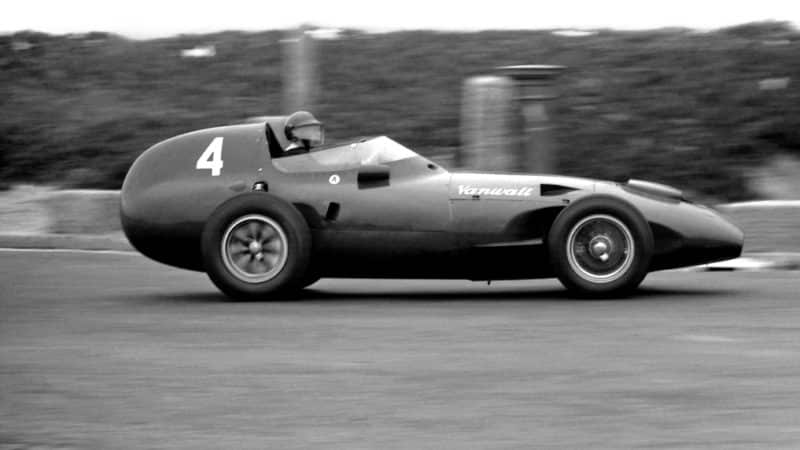
Almost half the field at the 1958 Portuguese GP were British, and Brooks was there racing the Vanwall.
GP Library/Getty Images
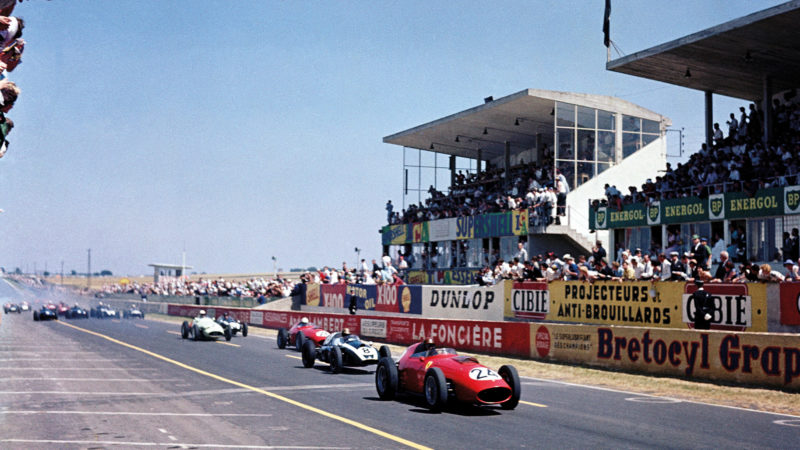
The start of the 1959 French GP at Reims, with Brooks leading from pole for Ferrari
Klemantaski Collection/Getty Images
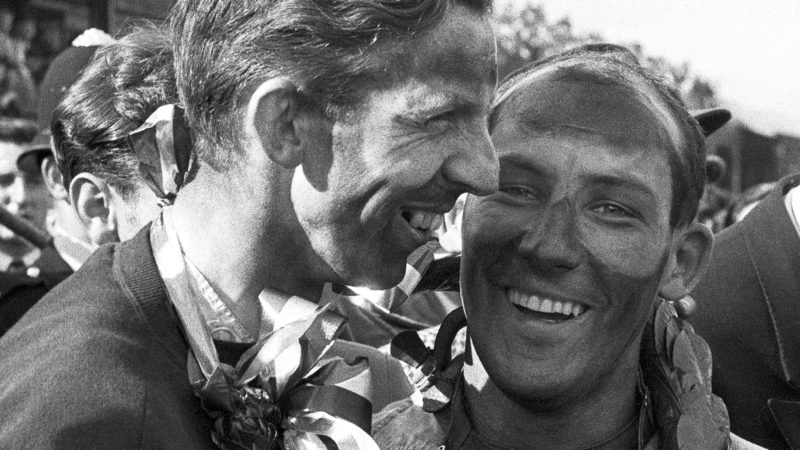
In the shadow of Stirling Moss, Aintree, 1957
Bernard Cahier/Getty Images
Would he be more famous now had he won that championship? Not very much. Continued fame needs constant fanning, and Tony wasn’t suited to that. In photographs he looks self-conscious, even when bearing victory trophies; not for him the champagne spraying or the riotous after-party stories. There’s a photo of him having a celebratory drink after a victory; it’s a cup of tea. For a man who could match the skills of the great Moss, his superb record received quiet applause rather than flashguns and celebrity.
When he retired after 1961 he set aside motor racing and turned to running his successful motor business. Few customers ordering their Lancia or Ford would look twice at the smartly dressed man in charge or know that in his time he had bested Hawthorn and Collins, Phil Hill and Jack Brabham in the most dangerous game of all. Only with the new interest in historic racing did he again become a mildly public figure, though it always seemed a relief to him once the event was over.
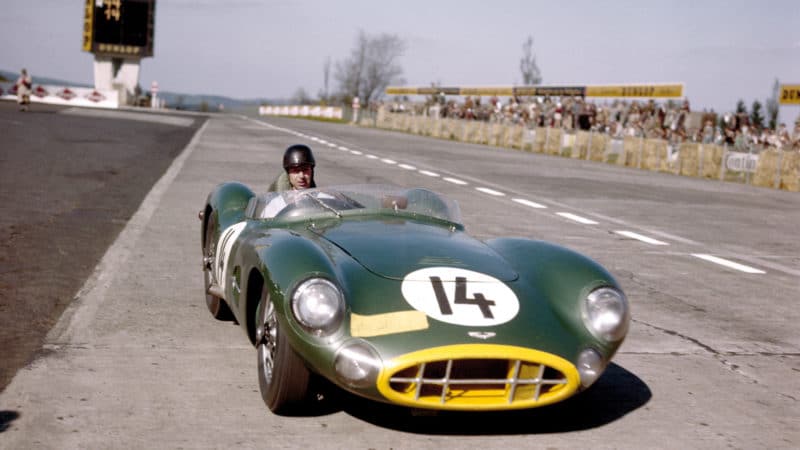
He co-drove the Aston Martin DBR1 to victory in the 1957 Nürburgring 1000Kms
Klemantaski Collection/Getty Images
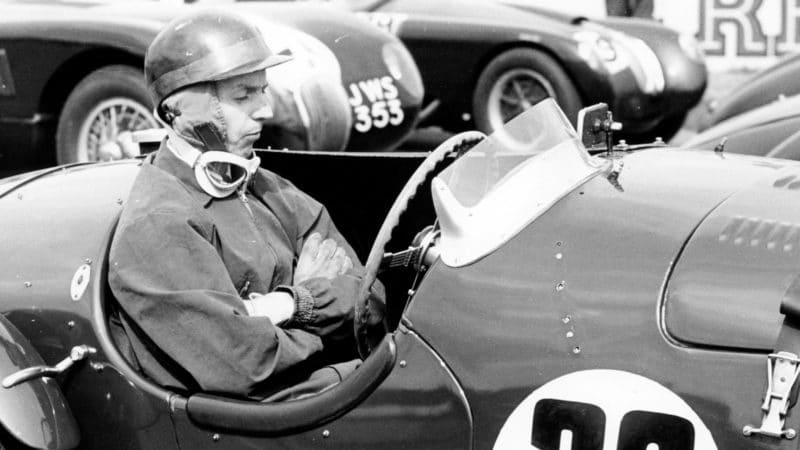
At Goodwood in 1954 for the Members’ Meeting
Getty Images
His analytical attitude shows clearly in his autobiography, every word penned by himself. Famously a delicate, even elegant driver, he could see artistry in the balance of physics and mental acuity that guides a car through the perfect line in a corner, and titling his book Poetry in Motion sums up that insight. Parts of it are lyrical descriptions of the interaction between driver, car and track. He was not keen to write a whole book about himself, but once persuaded he felt he had crafted it to the best of his ability. Once it was published, if I asked him yet again for memories he’d often say,
“I don’t think I can improve on what I said in my book…”
That could be frustrating: he would fuss mightily over the exact phrasing of a quote for you to use, and when he wrote for us would plead that we neither cut nor alter his words, even if he had written 50% more than requested. It wasn’t a bombastic demand, merely the knowledge that he had done the job properly. Doing the job properly was Tony’s way, always with sportsmanship, playing for the team, not for himself. Witness that victory shared with Moss at Aintree in 1957: he deserved applause not for giving up his Vanwall to his team-mate, but for promising to keep it high in the running in case Stirling had a problem, although battered and weakened by his Le Mans accident just weeks before.
So the last grand prix victor of that danger-ridden postwar decade has left us. He merited more acclaim than he received, but I suspect that suited this modest man. While he dealt patiently with letters and phone calls from fans, he would hate to have been pestered in the street by photographers. Though he was pleased to be remembered he never sought attention; he seemed slightly embarrassed by all the fuss when in 2008 Goodwood gave him a tribute. And when he rang he would always explain who he was – “It’s Tony. Tony Brooks.” As if I wouldn’t recognise the voice of one of the greatest postwar grand prix drivers.
